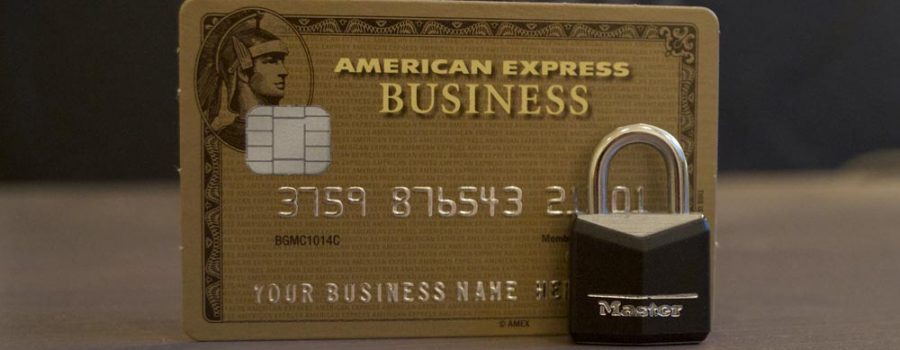In the 10 years I have been writing about credit repair related topics no topic has been more popular than my entries debunking popular credit repair myths regarding the credit scoring process. Buckle your seat belts because I am presenting a distilled summary of credit repair myths that have more lives than Jason and Keith Richards combined…and this list is by no means complete! Just when I think I’ve heard them all new credit repair myths will crop up.
Credit Repair Myths Debunked
MYTH: Credit Bureaus grant or deny credit.
Credit bureaus merely gather information from various sources including merchants, lenders, their clients and public records. This information is fed back to other paying clients such as banks, credit card issuers, and lenders of all stripes after being scored by FICO’s computers. FICO is a totally separate company from the credit reporting agencies. Your FICO score measures the statistical probability of you the consumer paying as agreed. How much of a risk you represent to a lender is based on a complex formula including your past history of paying your bills on time, your debt to available credit ratio, mix of types of credit, age of accounts and a number of other factors. Credit reporting agencies neither grant nor deny credit.
MYTH: Credit Bureaus are run by the government.
Credit bureaus are private for profit corporations. They are now overseen by a government agency called the Consumer Financial Protection Bureau (CFPB).
MYTH: There are only 3 Credit Bureaus
Equifax, Experian and TransUnion are the big 3 credit reporting agencys used by the vast majority of lenders it is true. There are actually many more that are used in certain specialized ways. LexisNexis, Innovis, Core Logic, CHEX and Choice Point are but a few examples. The Consumer Financial Protection Bureau is monitoring about 30 of these alternative credit reporting agencies. If you are denied credit the lender must disclose to you the source of its information.
MYTH: Employment history counts in your score.
This myth persists because your occupation is listed under personal facts as a further identifying factor. This entry is frequently out of date. When you change jobs your new employer is not required to report anything to the credit bureaus. This employment information is not usually updated unless you do it yourself or a new credit application listing it is recorded. You can write the bureaus and update this section if you want. A fast food minimum wage worker can easily have a better credit score than a professional with a high salary. Your employment history will be important to a banker weighing the merits of your mortgage application but will not affect your credit score.
MYTH: Income is included in my credit report
One of the many things about credit scoring that seems to defy common sense is the fact that your income is not considered in your credit score. It is understandable that this fact comes as a big surprise to most people. The practice of including your income in your credit reports was stopped many years ago for several reasons. Many times income varies wildly from year to year. Opportunities for deception abound. Bonuses can be advanced or deferred. Reports of income are just too unreliable. Income is not that great an indicator of whether you can be trusted to pay your bills, live within your means and handle credit responsibly.
MYTH: Your age can be used against you
Your age is not factored into your credit score. Federal laws against age discrimination ensure that this iron clad rule cannot be violated. Your age is there because date of birth is such an important factor in identification. The age of your credit history is very definitely a significant factor so older people have the advantage there. In that sense this is one of the few credit repair myths that hide a grain of truth.
MYTH: Criminal records are included
Credit bureaus do not report criminal charges or convictions. The only exception to this of which you should be aware are credit bureaus that service landlord tenant rental applications. You must consent to this criminal record search on the release you sign when you apply.
MYTH: Utility payment records are included.
Utilities do not send records of your payments to the credit bureaus. There will be a record of their inquiry when you applied for the utility service or for a cell phone but that’s the only record that shows unless you default and the account goes into collection. All those on time payments that would prove your reliability won’t show but neither will the occasional late payments show to hurt your score. If the account goes to collection these utility collection accounts can be hard to get rid of even if paid in full. An account marked paid in full is better by far than an open collection. There is still nothing better than complete expungement as if the negative entry never existed.
If you settle for less than the full amount of the claim the report will show that fact. This carries some negative weight but is far better than default.
MYTH: Courts send public records to the credit bureaus
Courts do not send records to the credit bureaus. There are several companies that supply the credit bureaus with public court records. The ink will barely be dry on a bankruptcy filing when it becomes a matter of public record with the credit bureaus as well. Bankruptcy courts have nothing to do with it. These records along with tax liens and judgments are picked up by a system called PACER as well as LexisNexis and other vendors of public records. Judgments and tax liens are no longer reported by the big 3 credit reporting agencies because of stricter verification requirements.
MYTH: You have to remind credit bureaus to remove negative data after 7 years.
The credit bureaus must remove most negative entries after 7 years and 6 months have expired from the date of first delinquency. In practice they usually do expunge as a matter of policy after 7 years. Exceptions to this include Chapter 7 bankruptcies at 10 years after filing and Chapter 11 bankruptcy at 7 years after filing. There are other exceptions as well. The credit bureaus are supposed to remove expired negative entries on their own. It is common but illegal for credit bureaus to start the expungement clock ticking from the date the collector reports the debt rather than the legally mandated date of first delinquency. It is up to you to monitor your report to ensure credit bureau compliance in this critically important area.
MYTH: Denial of credit hurts my score.
The hard inquiry that was made that lead up to the denial of credit is a negative factor worth a few points in most cases for a year from the date on which it was made at the credit reporting agency where it was made. The denial of credit itself has no effect. Dispositions of applications for credit are not housed in the credit reporting agencies’ data banks.
MYTH: Too much available credit hurts my FICO Score.
FICO does not contain a negative component in its scoring algorithm to harm the score of people with too much available credit according to FICO spokesman Craig Watts. If your lender tells you your credit score has been affected by too much available credit he must be in the small minority using one of the alternative FAKO scores such as Vantage. The lender may be using this as an excuse to deny you for other reasons that he prefers not to tell you. A minority of smaller credit unions may have policies against those with too much credit
MYTH: Inquiries by collection agencies are hurting my score.
The Federal Debt Collection Practices Act (FDCPA) does permit debt collection agencies to make soft inquiries of your credit reports. The Act forbids “abusive practices.” The debt collector has an account number and a member number with the credit reporting agency. The machine reading the data sees this code. The inquiry is nullified as far as its ability to negatively impact your score.
MYTH: Purchasing alcohol and/or spending at “Gentlemen’s Clubs” or massage parlors hurts my credit score.
What you spend your money on is not stored in the credit reporting agency’s database. Credit scoring is strictly a numbers game. There is no such thing as a negative impact based on anyone’s judgment regarding the morality of your spending.
MYTH: Creditors have to accept $1.00 payments.
Creditors do not have to accept $1.00 payments except in the extremely unlikely event that there is a special provision in your contract requiring them to do so. Why would you want to? You would be freshening up an old debt. Fresh debts hurt your score more than older negative entries.
MYTH: Debt settlement companies can repair my credit score.
Debt settlement companies take your money, hold on to it and later try to settle your debt for less than its face value. In the meantime your score is being destroyed by month after month of delinquency. You could do this yourself if that’s what you really want to do. Debt settlement companies are a terrible option for those who are in financial trouble. They charge hefty fees whether they succeed in reaching a favorable settlement of your debts or not. The federal Consumer Financial Protection Agency warns consumers against going this route. There’s no upside to paying a debt settlement company at all unless you count stopping the phone calls from collectors. You can stop the phone calls yourself with a cease and desist letter demanding that they stop.
These remarks do not in any way reflect poorly on using the services of a non profit credit counseling agency. Non profit credit counseling agencies can do some consumers a world of good. There is no down side at all to trying this service. Your use of a credit counselor does not affect your credit score.
MYTH: Opting out of unsolicited credit card offers helps my credit score.
Unsolicited credit card “pre-approved” or “pre-qualified” offers do no harm. These offers are made only after a soft inquiry. They don’t affect your score one way or another.
MYTH: Checking my own credit hurts my credit score
You can check your own credit as many times as you want with no negative effect on your credit score. Self checking is always considered as a soft inquiry.
MYTH: Debt to income ratio affects my credit score.
Debt to income ratio has no effect on your credit score. It is debt to available credit ratio that has a huge effect at 30% of your entire score. The best way to quickly improve their credit score for most people is to pay down their credit cards. Getting your credit limit raised also gives instant help to that ratio. Many people are understandably amazed to find out that additional income doesn’t affect credit scores.
Debt to income ratio is very important to mortgage lenders. This is I’m sure the source of the confusion.
MYTH: Credit scores merge upon marriage
There is no merger. Marriage can have a profound effect upon your credit. There are many entanglements, particularly in community property States, but there is no merger of credit scores anywhere. There is no provision for such a merger at the credit reporting agencies.
MYTH: Carrying a balance on my credit cards helps my credit score
Nothing could be further from the truth. Ethan Dornhelm, Vice President of scores and predictive analysis at FICO states: “The FICO score does not contain information that would indicate whether you are carrying a balance on the card”. The balance you carry compared to your credit limits determines your debt to available credit ratio. This ratio on your revolving debt accounts for 30 % of your credit score. A high balance hurts badly. A low to zero balance on credit card debt is a key component of any good credit score second only to timely payments.
MYTH: Payday loans can help me build credit
Payday loans are not reported to credit bureaus. Even if you successfully pay the balance with its near 400% interest it will have no impact good or bad on your credit report. Payday loans do not exist as far as the credit reporting agencies are concerned unless they become a collection. That collection will be reported like any other collection. Payday loans can hurt you that way but they can’t help you. Payday loans are to be avoided at all costs.
FINALLY: MY PERSONAL FAVORITE…THE SEVEN YEAR DELETION RULE REQUIRING AGING DEBTS TO BE DROPPED OFF THE REPORTS COMES FROM A BIBLICAL ADMONITION IN DEUTERONOMY TO FORGIVE DEBTS AFTER SEVEN YEARS
This is one of the credit repair myths that even certain credit professionals swear is true! I have never been able to find evidence of the truth or falsity of this claim. The Bible contains encouragement to forgive debt in several places. At least this story is harmless and makes a good conversation starter.
Now that we have had some fun with some of the common credit repair myths it is time to get into the real work of fixing your reports. You now have a solid background in the workings of the credit repair system. You can consider yourself to be moving into the status of a seasoned credit repair veteran who is about to get down to action. You will become equipped to make the credit scoring system work for you instead of against you for the rest of your life.




